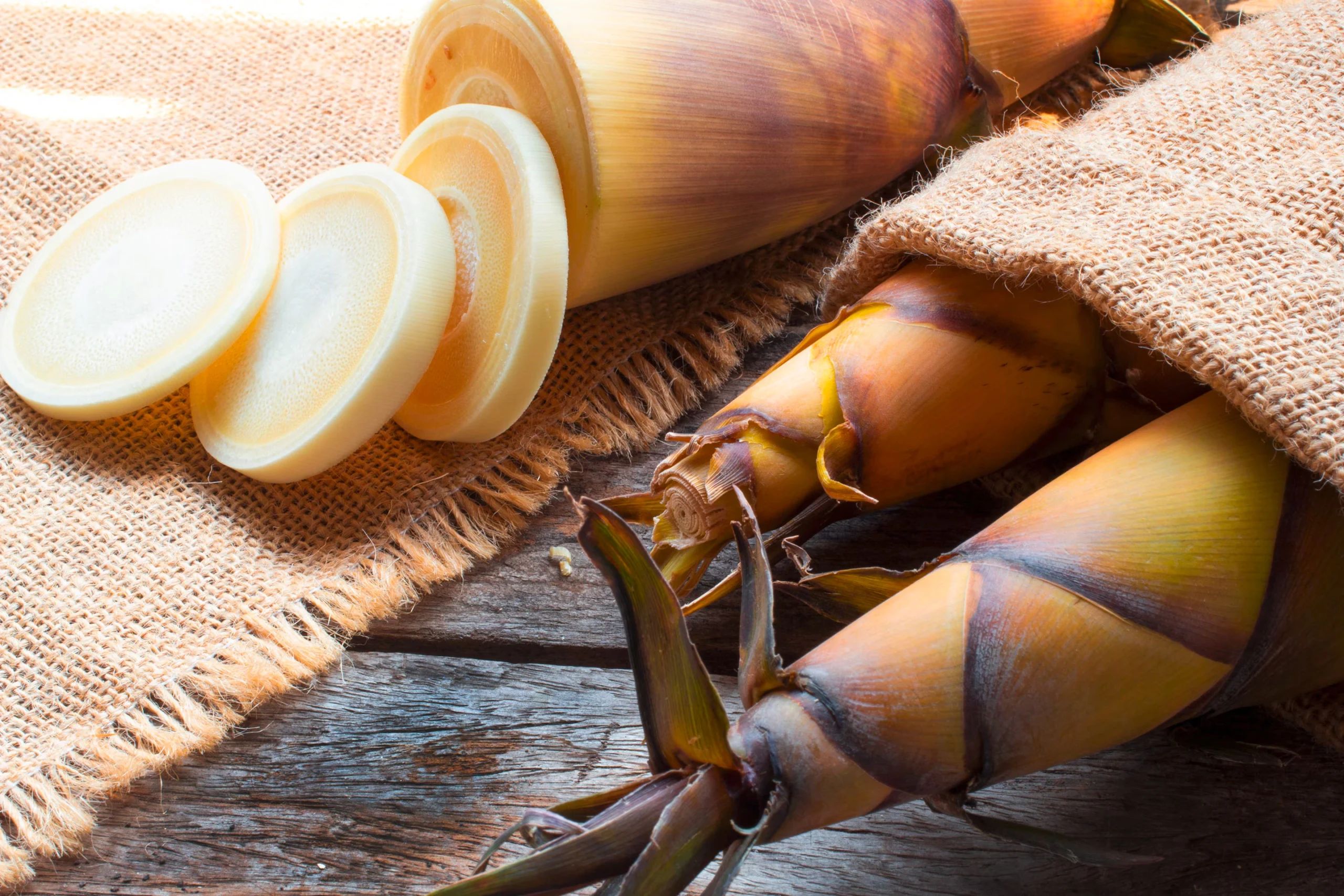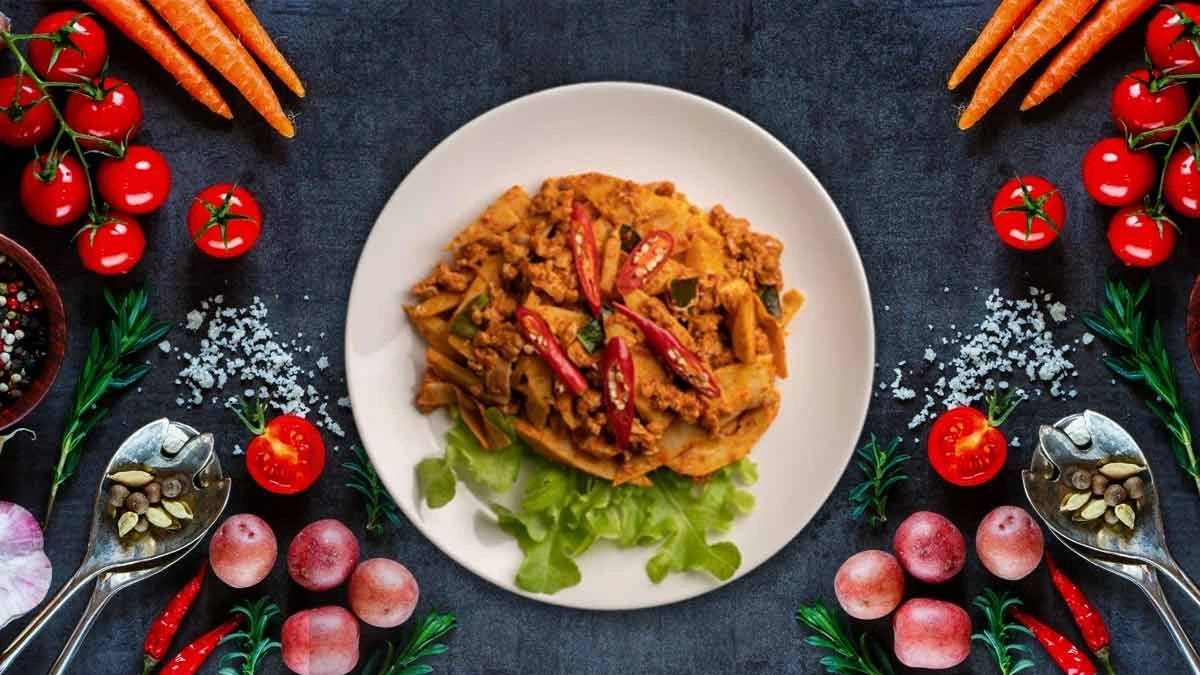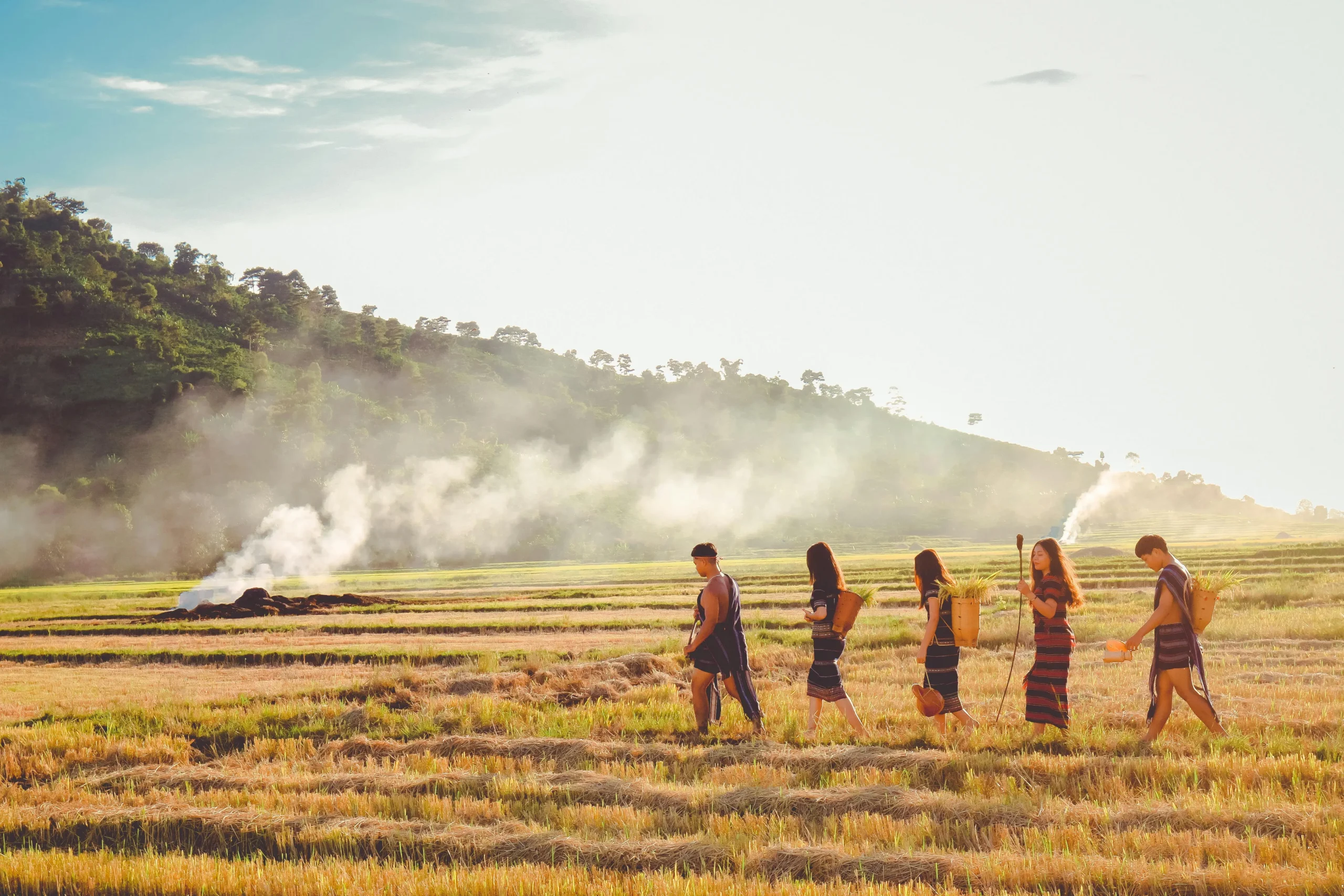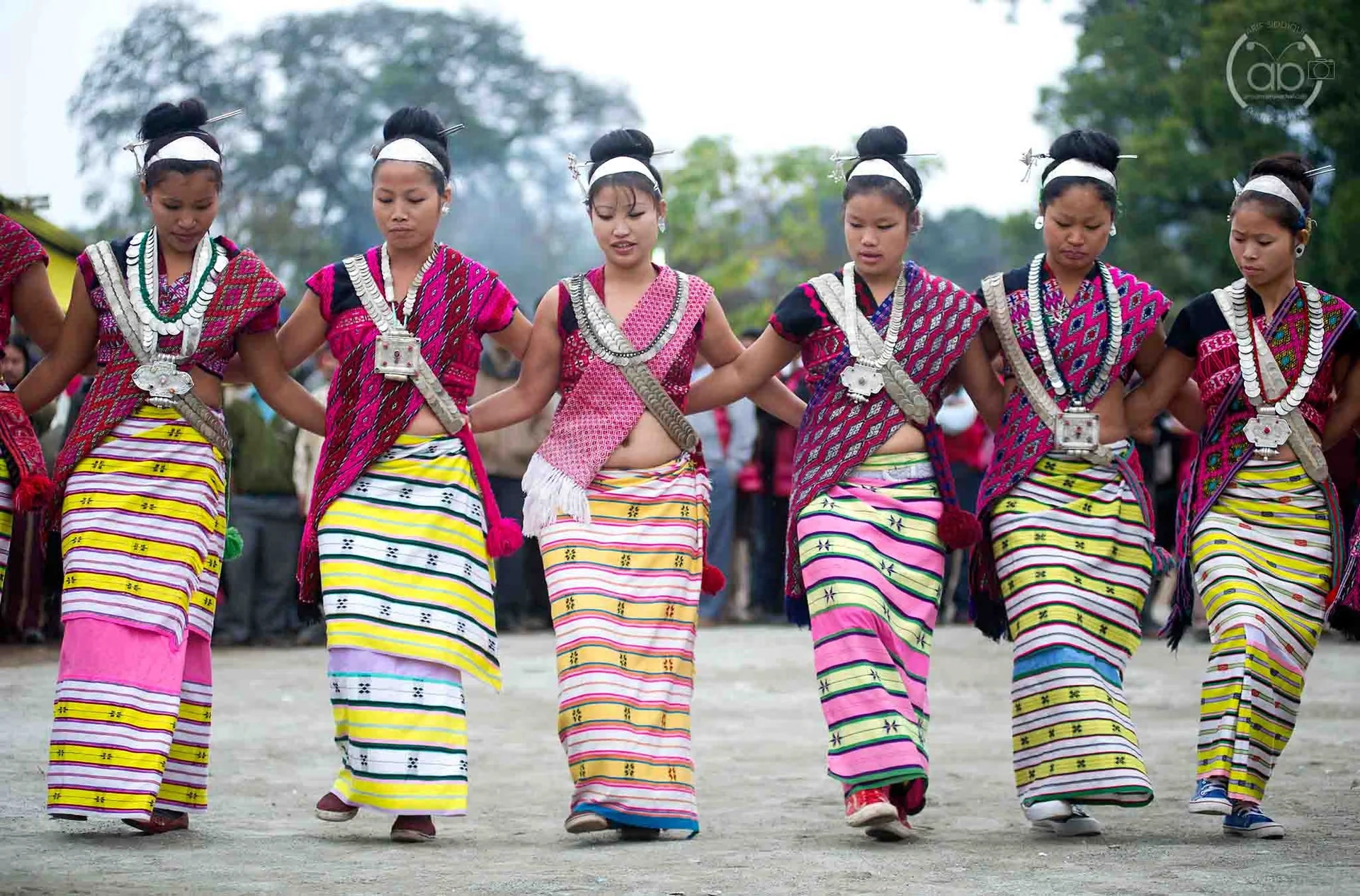Tezu: A Taste of Tradition and Flavor

Bamboo shoots
Bamboo shoots are young, tender shoots of bamboo plants, widely used in various cuisines, especially in Southeast Asia. They are known for their crunchy texture and subtle flavor, making them a popular ingredient in stir-fries, salads, and soups. Rich in nutrients, bamboo shoots are low in calories and high in dietary fiber, offering numerous health benefits. In Arunachal Pradesh, they are often harvested fresh from the forests and play a vital role in local culinary traditions. Additionally, they are celebrated for their unique taste in traditional dishes.
Pika Pila
Pika Pila is a traditional fermented beverage from Arunachal Pradesh, often made from local grains like millet. This slightly alcoholic drink is characterized by its unique sour taste and is commonly consumed during festivals and celebrations. Pika Pila reflects the rich cultural heritage of the region and serves as a symbol of hospitality among the local tribes. The brewing process is often a communal activity, bringing families and communities together. Enjoying Pika Pila during gatherings fosters a sense of unity and strengthens cultural ties among the people.


Mishmi tribes
The Mishmi tribes are indigenous communities residing in the northeastern Himalayan region, primarily in Arunachal Pradesh. Known for their rich cultural heritage, they practice traditional agriculture and engage in unique crafts, such as weaving and bamboo work. The Mishmi people celebrate vibrant festivals that highlight their connection to nature and ancestral beliefs. Their traditional attire, often adorned with intricate patterns, showcases their artistic skills and cultural identity. The Mishmi also have a deep respect for their natural.
Tamladu
Tamladu is a traditional dish from Arunachal Pradesh, primarily made with locally sourced ingredients, including fish, bamboo shoots, and various spices. Known for its distinct flavors, Tamladu is often prepared during community gatherings and festive occasions. This dish not only showcases the culinary traditions of the region but also emphasizes the importance of local produce and sustainable practices. Each family has its own unique recipe, passed down through generations, adding to the dish’s rich heritage. The preparation of Tamladu is often a communal affair.
